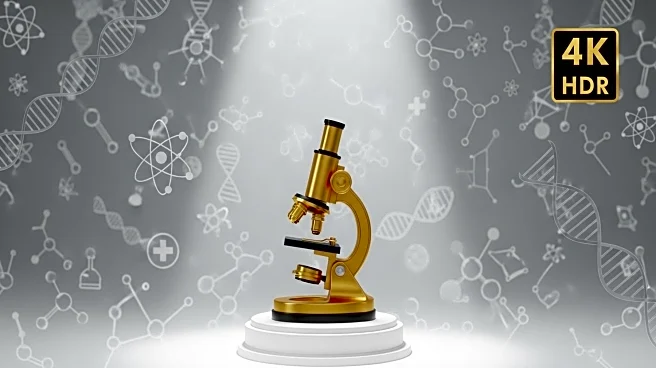What's Happening?
Mary E. Brunkow, Fred Ramsdell, and Shimon Sakaguchi have been awarded the Nobel Prize in Medicine for their groundbreaking research on peripheral immune tolerance. Their work has significantly advanced the understanding of how the immune system prevents itself from attacking the body's own tissues. Sakaguchi's discovery in 1995 of regulatory T cells, a subtype of T cells, laid the foundation for this field. Brunkow and Ramsdell furthered this research in 2001 by identifying a mutation in the Foxp3 gene, which is crucial for the development of these regulatory T cells. This gene plays a role in preventing autoimmune diseases by controlling the immune response. The Nobel Committee recognized their contributions as pivotal in opening a new field of immunology, with potential applications in treating autoimmune diseases and cancer.
Why It's Important?
The recognition of Brunkow, Ramsdell, and Sakaguchi's work underscores the critical importance of understanding immune tolerance in medical science. Their discoveries have paved the way for new therapeutic approaches to autoimmune diseases, which affect millions of people worldwide. By elucidating the role of regulatory T cells and the Foxp3 gene, their research offers hope for developing treatments that can modulate the immune system more precisely, potentially reducing the burden of autoimmune conditions. This advancement not only enhances scientific knowledge but also holds promise for improving patient outcomes and reducing healthcare costs associated with these chronic diseases.
What's Next?
Following this recognition, the scientific community is likely to intensify efforts to translate these findings into clinical applications. Researchers are expected to focus on developing therapies that harness regulatory T cells to treat autoimmune diseases and possibly cancer. The Nobel Prize announcement may also stimulate further investment in immunology research, encouraging collaborations between academic institutions and the biotechnology industry. As the Nobel announcements continue throughout the week, the spotlight on scientific achievements may inspire new initiatives and funding opportunities in related fields.
Beyond the Headlines
The award highlights the ethical and societal implications of advancing medical research. As scientists explore the potential of manipulating the immune system, questions about the long-term effects and safety of such interventions will arise. The discoveries also prompt discussions on healthcare accessibility, as new treatments must be made available to diverse populations. Furthermore, the recognition of these scientists emphasizes the importance of international collaboration in scientific research, as their work spans institutions in the United States and Japan.









